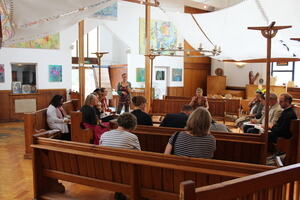Course overview
- Provider
- Futurelearn
- Course type
- Free trial availiable
- Deadline
- Flexible
- Duration
- 4 hours
- Course author
- Yves Schemeil
Description
Globalisation has created countless opportunities in the last century, but it’s also changed international power structures, now we interact with our environment, and supply models around the world. While nobody can stop the pace of globalisation, it doesn’t mean they can’t try.
Governments and citizens across the world attempt either to benefit from globalisation - and try to limit its negative effect - or they try to avoid it.
On this course, you’ll explore why people are either pro or anti globalisation. You’ll discover why some governments and countries choose boundaries and demarcation and others choose integration.
Ce cours peut être entièrement suivi en français. Des traductions françaises sont disponibles, les discussions se déroulant sur un forum francophone.
Is it possible to withdraw from globalisation?Numerous countries have either tried to limit the impact of global markets within their borders - many see this as a refusal of Western culture, while others are subject to authoritarian regimes. You’ll look at a number of examples to review the factors and challenges associated with refusing to build strong international relations.
Explore what we mean by global cultureRefusing global culture means rejecting moral imperatives that have often been created by other cultures or collectives. You’ll review what these include, and consider critiques of humanitarian law and human rights, and how some may choose to refuse universal norms.
Similar courses

-
Flexible deadline
-
2 hours



